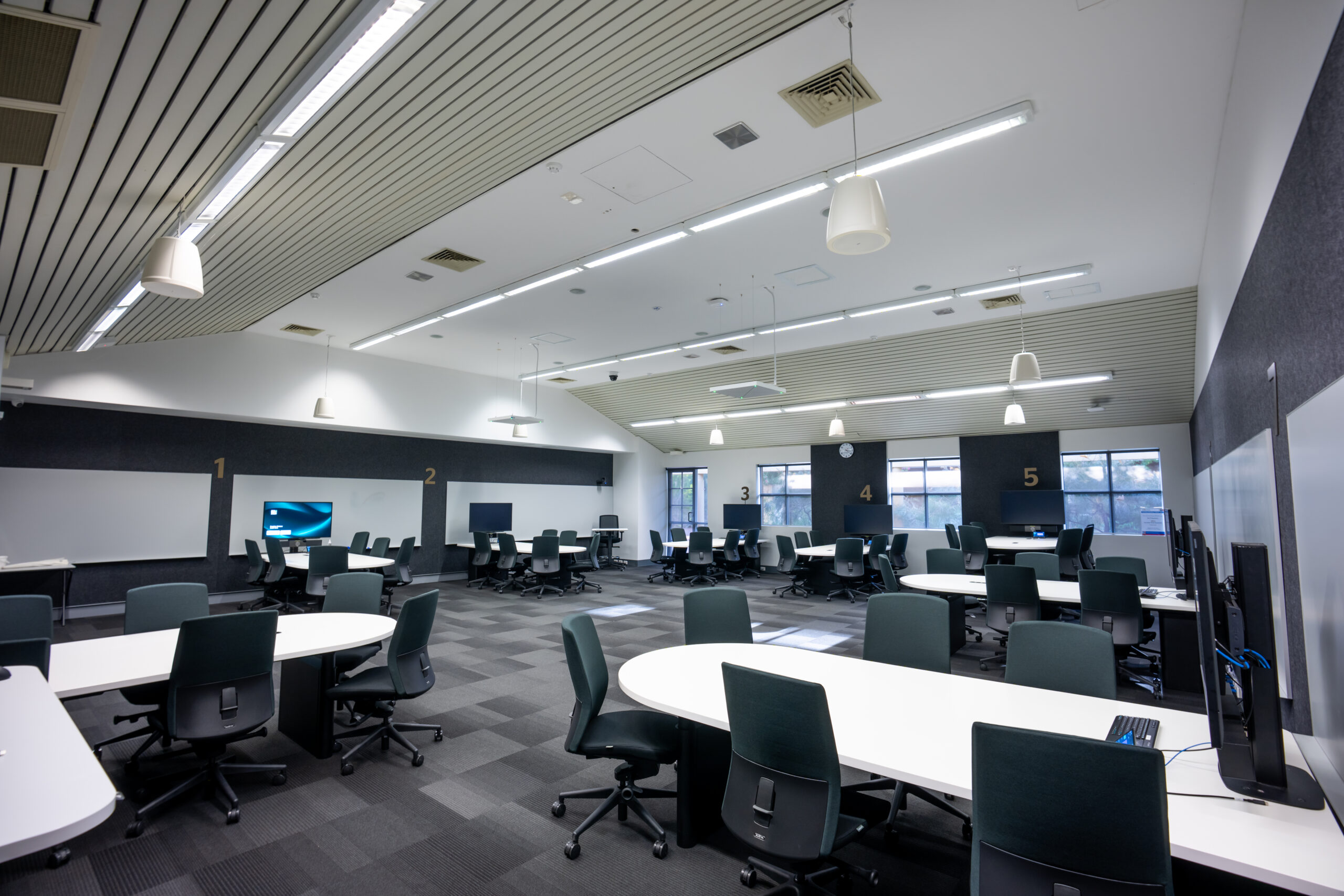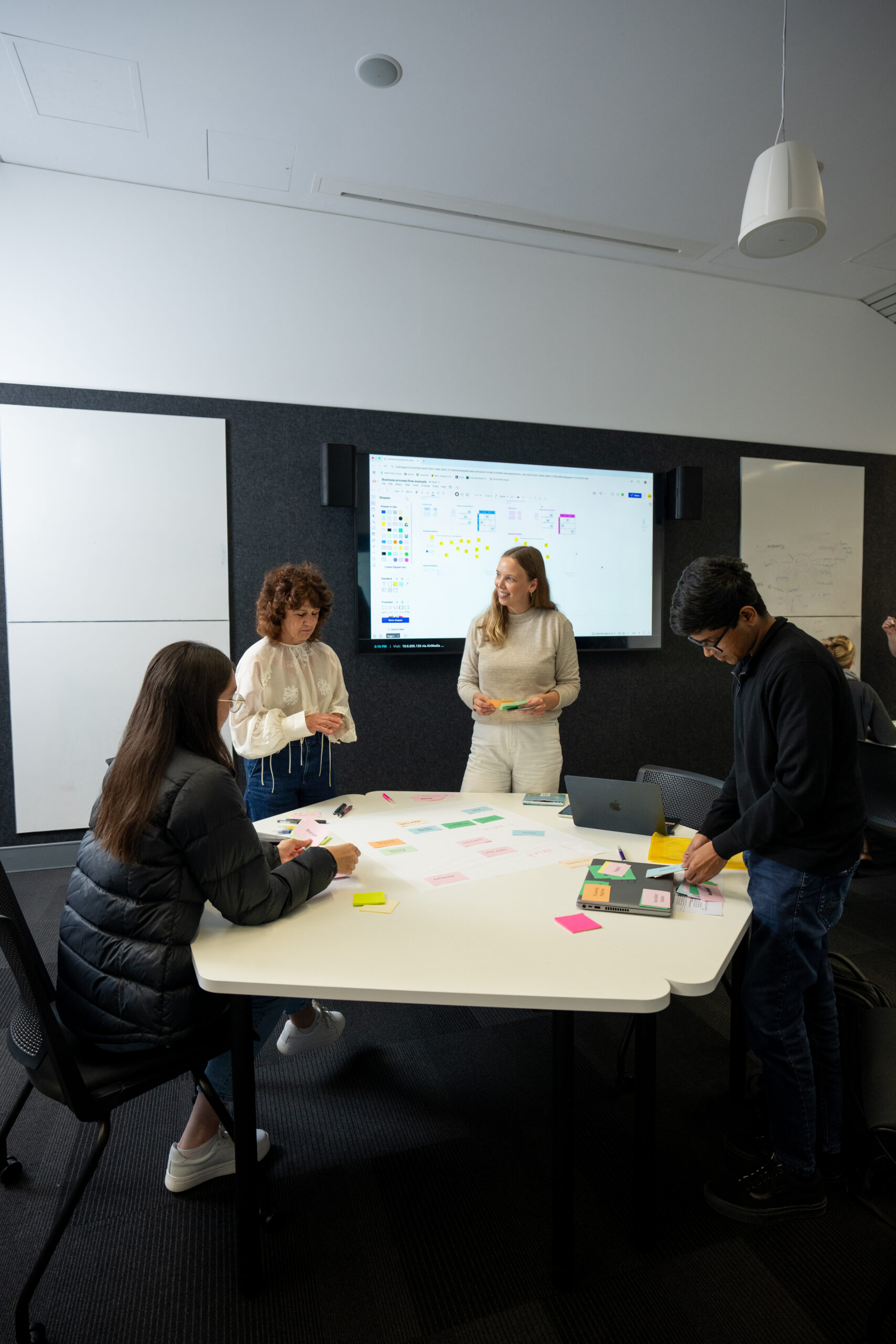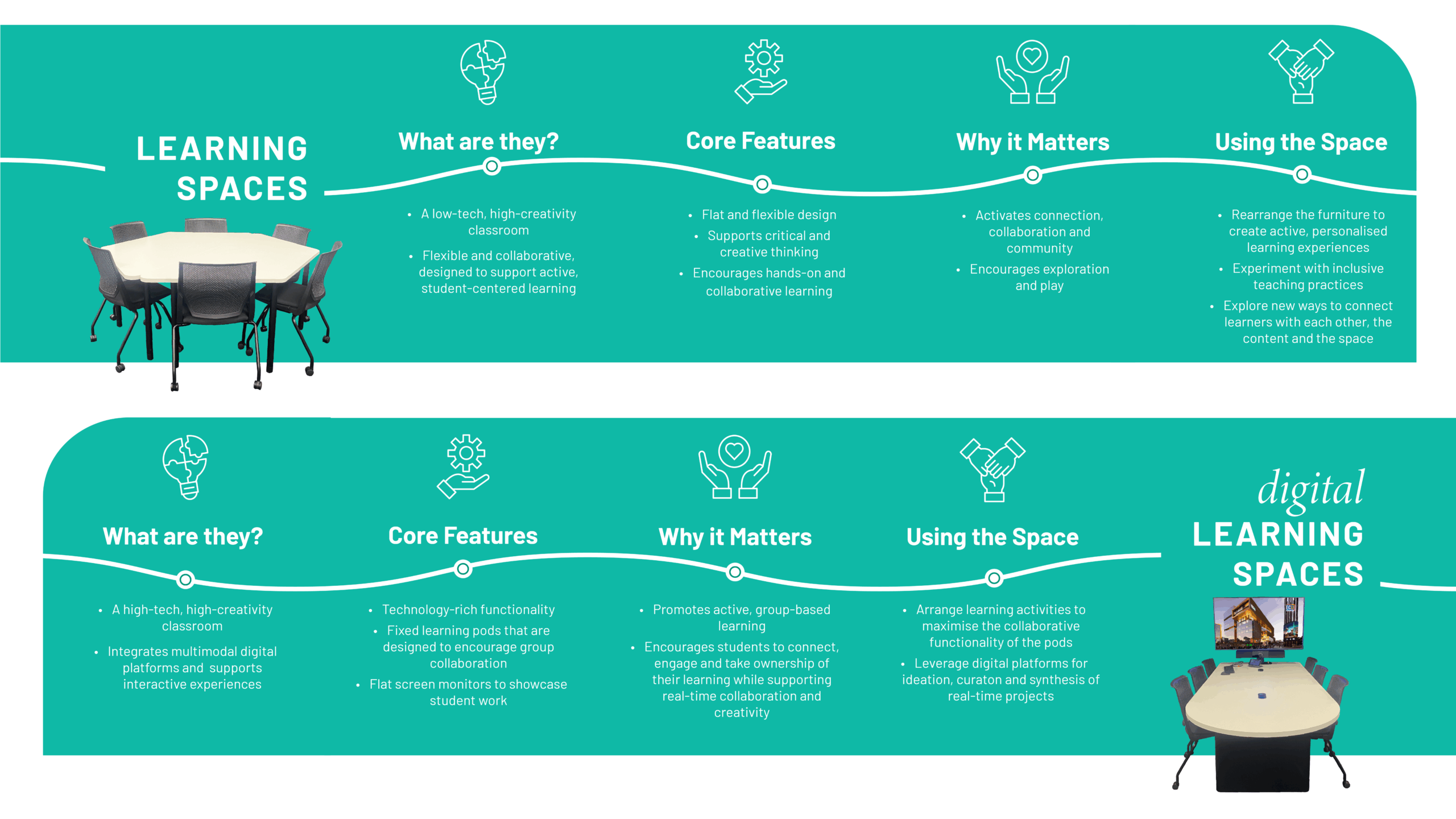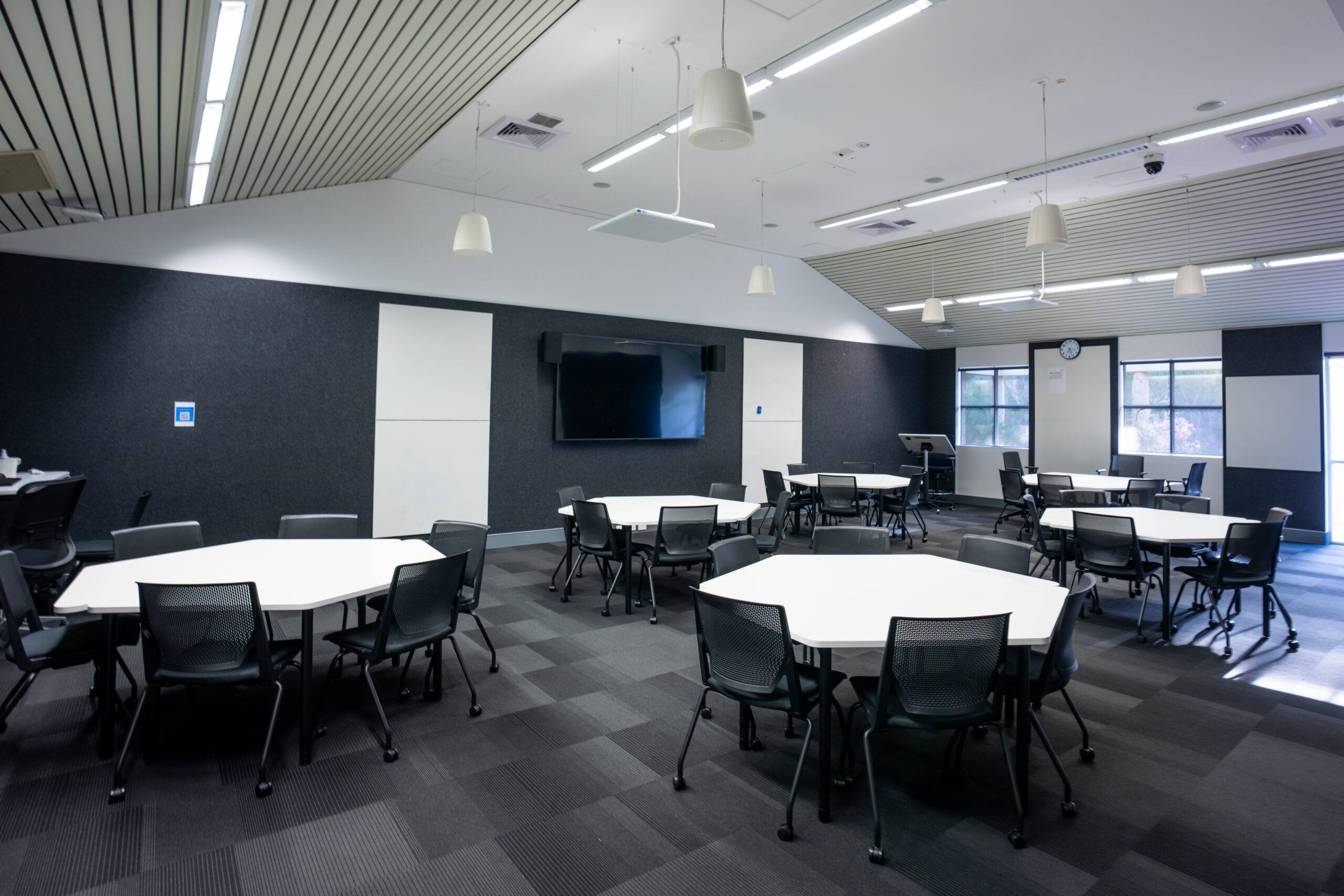
Discover how the recently opened Pilot Space classrooms are purposefully designed to foster deeper connections, active learning, and innovative teaching practices—empowering students and educators alike to reimagine the learning experience.

Discover how ECU City’s Pilot Space classrooms are purposefully designed to foster deeper connections, active learning, and innovative teaching practices—empowering students and educators alike to reimagine the learning experience.
Our collaborative learning Pilot Spaces were opened in 2024 at the Mount Lawley and Joondalup campuses in support of the transition to the new ECU City. The Pilot Spaces allow educators and students to experience these innovative learning environments firsthand in advance of the new campus opening in Semester One, 2026. These spaces provide an opportunity for a smooth and confident adaptation to the exciting new facilities at ECU City; however, these spaces are for everyone and can also be utilised by educators located at either campus.
What are the Features of Each Space?
We have two learning spaces available, each designed to enhance different kinds of learning and collaboration. Research has found that these innovative spaces have shown an improvement in overall assessment scores as well as increased engagement, communication, and motivation for students.
The Learning Space is an innovative learning environment designed for flexibility, adaptability, and seamless technology integration. Its agile setup supports diverse learning needs. Educators can rearrange furniture and use digital tools to enhance their teaching strategies. The space fosters student engagement and participation through social interaction, exploration, problem-solving, and reflection. A mobile Facilitator Station allows educators to control the room’s technology, making it easy to switch between presenting, demonstrating, guiding, and observing.
The Digital Learning Space is a dynamic, technology-rich environment designed for flexible, multi-modal learning. With a focus on small group collaboration, student tables function as interactive digital learning pods, each equipped with a large screen to support brainstorming, creation, and knowledge sharing. Students can engage with a mix of digital and hands-on tools to personalise their learning experience, choosing how they interact with content and demonstrate their understanding. An integrated digital platform allows educators to seamlessly transition between different pods’ work, quickly respond to questions, and decide when and how to share a group’s outputs across all screens—enhancing engagement and self-directed learning. Like the Learning Space, these rooms also feature a mobile Facilitator Station, allowing educators to control the room’s technology and transition between presenting, demonstrating, guiding, and observing.

The Role of Space in Learning Outcomes

These innovative learning environments are intentionally designed to foster collaborative, relational, and inquiry-based learning. Grounded in active learning theories, they encourage rich educational experiences by promoting collaboration, co-construction, and peer learning. The physical space itself plays a crucial role in shaping learning outcomes, acting as a form of technology that supports engagement. Educators are encouraged to reflect on how the setup influences student interactions, ensuring that pedagogy, space, and technology work together to enhance active learning. By leveraging the room’s affordances—whether through its layout, materials, or AV tools—educators can create dynamic learning experiences where students take ownership of their learning journey.

The pilot spaces have already been used in diverse ways, from podcast presentations and play read-throughs to boardroom-style discussions and AV-supported student-led activities. Designed without a fixed “front of the room,” these flexible environments challenge traditional teaching norms, fostering creativity and exploration. Through the Educational Experience (EdEx) team’s workshops, ECU staff are empowered to integrate educational theories into these spaces, fostering curiosity and meaningful student connections. By shifting the educator’s role to that of a learning designer, these spaces support diverse outcomes, amplify student voices, and create dynamic, student-centred educational experiences.
How to get Involved
So, how can you use these new learning environments? Well, that is entirely up to you! We encourage you to be curious and experimental in how you deliver your classes in these spaces. They are designed to encourage collaboration and creativity, not only in the learning outcomes for students, but also in the learning design of your class. Can you move the tables into a new format that will encourage discussion more openly? Can you ask students to interactively co-create a learning artefact using the digital connectivity in the Digital Learning Space? The options are endless and can be adapted to relate to your specific discipline.
More importantly, these spaces belong to everyone. We encourage you to explore, experiment, and grow professionally through them. This applies not only to the Schools and teaching areas that are moving to ECU City, but everyone across the university. Amazing work is happening every day at ECU, and our team would like the pilot spaces to be used to support you and the positive impact you are having on your students’ experience here.
What’s Next?
The EdEx team is planning events for the upcoming year that focus on the students’ voice and micro-teaching opportunities as well as educator workshops that are targeted to each School. We look forward to welcoming you to the pilot spaces for upcoming workshops and micro-teaching opportunities in 2025!
Want to learn more about upcoming opportunities to utilise our Pilot Spaces in 2025? Whether you’re looking to explore innovative teaching methods or experience these dynamic learning environments firsthand, the EdEx team is here to help! Get in touch with us today to find out how you can get involved.
Related Articles
Explore related articles and stay informed on the latest in Learning and Teaching at ECU.